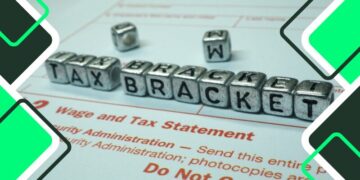How can you build a good credit score in Australia?

Building a good credit score can help you with your credit borrowing. It is not like you will never need a loan in your life. Unless someone is a billionaire, everyone must borrow money at some point. Whether it is for the kid’s tuition fees, paying for medical emergencies, covering the mortgage, or just clearing some old debts, a good credit history enhances the chances of borrowing loans from better lenders on better terms and interest rates.
Let’s discuss how to improve your creditworthiness. Keep reading to learn everything about building a good credit history in Australia.
What Is a Credit Score?
A person’s strong credit history, or credit score, in Australia is significant when applying for loans, credit cards, or mortgages. Your credit history informs the lender of how responsible you are with the money that has been borrowed, and this dramatically affects their decision to approve your application and the rates of interest offered.
Good credit is not as easy as it seems and requires sound financial planning. This guide instructs Australian residents on creating a solid credit history over time.
Understanding the Australian Credit System
In Australia, credit history is tracked within a credit report maintained by credit reporting organizations like Equifax, Experian, and Illion. These organizations record data about your financial behavior and activities, which include:
- Applications for loans and credit cards
- Payments made towards some bills, credit cards, or loans
- Credit checks done by lenders on you
- Outstanding overdue debts
- Court judgments or bankruptcies
Using this data, each agency creates a credit score that predicts a user’s reliability regarding loan use. Scores typically range from 0 to 1,200 (depending on the agency), with higher scores indicating better credit health.
How to build a good credit history in Australia?
Here’s a detailed guide on how to build a credit history. Following these steps may help Australian residents to build a good credit score:
Australian Bank Account
A local bank account plays a crucial role in building credit. It not only helps to establish credit but also finances purchases. Commonwealth Bank, Westpac, ANZ, and NAB, the largest Australian banks, offer new residents and students accounts.
Your bank account activity does not directly affect your credit score, but it enables you to manage your finances by paying bills, tracking expenses, and setting up direct debits.
How to Enroll on the Electoral Roll
Enrollment onto the electoral roll is another step in building a robust credit profile. Even if you are not eligible to vote, registering helps verify your identity and residential address. This identity verification improves lenders’ decisions regarding credit applications potential borrowers submit.
To register, visit the Australian Electoral Commission’s (AEC) website and follow the steps for updating or enrolling your information.
Always Pay Rent & Utilities on Time
Establishing a positive payment history starts with paying every bill when it is due. Several utility and telecom companies pass on payment information to credit bureaus. Failing to pay on time or outright missing payments can harm your credit score.
Ways to avoid paying late:
- Ensure direct debits are set up for the bills so there is no risk of missing due dates.
- Keep track of upcoming payments through budgeting applications.
- Having additional funds to deal with unplanned expenses is vital.
Look Into Getting a Starter Credit Card or Line of Credit
A low-limit credit card or a small personal loan can help build your credit history—if you handle it correctly. Some possibilities are:
- A student or low-limit credit card from a major bank
- Retail store cards (only if you can pay them off fully each month)
- Secured credit cards
- Small personal loans with simple repayment terms
With these options, you must use credit sparingly and always pay off the full amount by the due date. This way, you avoid interest charges and show evidence of good borrowing habits.
Use Responsible Credit
Credit utilization is the ratio of credit you use versus credit you can use. A good option is not letting this ratio exceed 30%. So, if your credit card limit is $2,000, then a good target is to have a balance of around $600.
To help you manage your utilization, consider the following:
- Splitting your payment into several smaller ones each month
- Charging your card to the max and paying it off
- Only extend your limit when it is needed
Exercise Caution on Applying for Credit
Every new credit application carries a cost—a hard inquiry on your credit report. Having too many inquiries in a very short time frame can be detrimental and give lenders the impression that you are in financial trouble.
Before opening a new credit account, consider first:
- Check their prerequisites and verify if you qualify for their products.
- Do not try to acquire multiple credit cards or loans simultaneously.
- Research pre-qualification methods that gauge your odds of qualifying without impacting your credit score.
Don’t Box Yourself in One Kind of Credit
Having multiple types of credit is better for your score because it demonstrates that you can manage more than one revolving credit account, like a credit card, alongside installment loans, such as a personal or auto loan. But do not overextend yourself with more credit than you can manage.
Remain on the lookout for your credit report and analyze it for any discrepancies
Here is how reviewing your credit report regularly is beneficial for you:
- Red flagging discrepancies that could mean identity theft
- Validating that your payment history is accurate
- Understanding what is negatively impacting your score
According to the Office of the Australian Information Commissioner (OAIC), you have the right to request a free credit report once a year from each of the three major credit agencies: Equifax, Experian, and Illion. Additionally, if you identify incorrect information on your credit report, you can dispute these inaccuracies directly with the responsible agency, which is tasked with correcting any errors.
You don’t need to rush and close old credit accounts
Lengthy credit histories can have a positive effect on your score. If you need to close an account, it is best to start with the novice accounts rather than the older accounts unless the older account has other disadvantages, like high fees.
Look out for the Buy Now, Pay Later (BNPL) offerings.
This option allows customers to break down their payments interest-free during a specified period. While it is customer-friendly, excessive dependency and failing to meet deadlines can adversely affect one’s credit score.
Consider the following projections for a more responsible use of BNPL:
- Treat it just like a credit card. Pay it back as you would for a credit card
- Payments must be made punctually to avoid racking up fees and harming your credit
- Limit the number of active accounts on your profile, giving you control over your spending.
Consult Professionals When Financial Issues Become Overwhelming
Even if financial challenges, such as debt management, seem overwhelming, consulting a financial counselor can be beneficial. Financial counseling services are confidential and available for free through programs like the National Debt Help Line.
Final Thoughts
Building a great credit score in Australia takes time, patience, and smart financial choices. By maintaining strict punctuality in bill payments, limiting credit usage, diversifying credit types, and regularly monitoring your credit report, you can steadily improve your score and strengthen your financial standing over time.
Having an excellent credit history provides better access to financial services, lower interest rates, and higher lending limits. Start making financially sound choices today—you’ll appreciate the benefits in the future.
Related content

Understanding tax brackets and how to minimise your tax burden

The Risks and Rewards of Investing in ETFs

10 Smart Investments for Young Australians in 2025

Emergency Fund: How to Start and What to Do

How to Take Advantage of Tax Benefits in Australia
